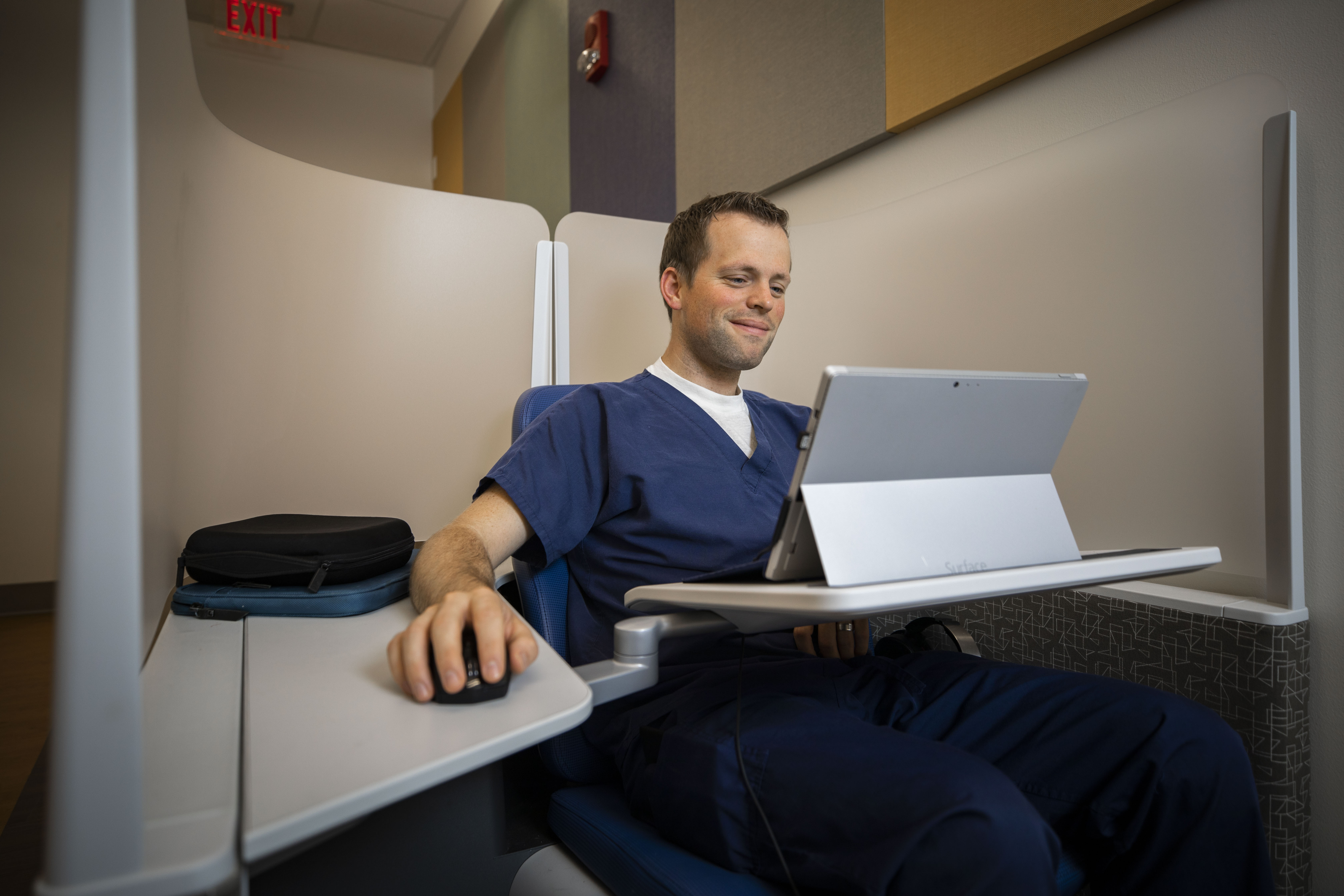Health Professional School Boot Camp Keeps Students Engaged Online
Throughout the summer the University of Kentucky College of Medicine has been part of a University-wide pilot program aiming to help boost resumes and build important skills for both UK and non-UK students.
The Summer Badge Program is not your average summer school. The program provides an opportunity for learners to complete courses and earn digital badges, regardless of their current major, with the badges certifying competency in a specific skill.
Faculty members from three different departments within the College of Medicine are part of the “Health Professional School Boot Camp,” which prepares learners for careers in health care-related fields through three courses: BCH 419G (Molecular Basis of Human Disease), PGY 560 (Pathophysiology), and MI 598 (Clinical Microbiology). The majority of students in the program are aspiring physicians, dentists, physician assistants, and other health care professionals.
The curricula of the Health Professional School Boot Camp is very content-intensive and fast-paced, according to Kevin Sarge, PhD, professor in the department of molecular and cellular biochemistry who teaches BCH 419G.
“The courses were specifically chosen to provide students key foundational content as well as frameworks for thinking about disease states, which we believe will help them more easily assimilate and master professional school curricula,” Dr. Sarge said.
BCH 419G is taught by Dr. Sarge, along with the department of molecular and cellular biochemistry’s Sabire Ozcan, PhD, and Tianyan Gao, PhD, also of the Markey Cancer Center. Their course is designed to teach students the key aspects of major types of human diseases including symptoms, causes, and treatments.
PGY 560 is taught by Ok-Kyong Park Sarge, PhD, and Dexter Speck, PhD, both from the department of physiology. Through this course students develop the ability to interpret and analyze the human body’s response to disease in terms of fundamental principles of biology and physiology using clinical cases involving the brain, heart, lungs, pancreas, adrenal glands, and reproductive tract.
“Gaining the ability to critically analyze clinical cases and expand the fundamental knowledge that they acquire from BCH 419G and their previous courses will help these students be better prepared for the admission requirement test, such as the MCAT, for the critical aspects of interviews, and for the rigorous curricula of their professional school,” Dr. Park Sarge said.
MI 598 is taught by Brian Higgins, PhD, of the department of microbiology, immunology, and molecular genetics. The literature-based course critically analyzes the pathogenesis of infectious agents through the lens of pathogen-based virulence factors and host immune response mechanisms, and it introduces students to a variety of pathogens, as well as the fundamentals of immunology, antibiotic therapy, antibiotic resistance, and molecular genetics.
Dr. Higgins said his course teaches students to analyze every piece of data from peer-reviewed manuscripts and determine for themselves whether conclusions drawn are valid.
“Over the course of the Coronavirus pandemic, everyone is being inundated with ‘data’ in many different forms — charts, graphs, and statements — and it is important for health care professionals to critically analyze and evaluate that data and determine its validity and applicability,” Dr. Higgins said. “As a health care worker, they will encounter promotional materials from representatives in various industries, and it is essential that they understand exactly what they are seeing.”
All three courses started in May and will continue through Aug. 6, with instruction conducted virtually through Zoom in response to the COVID-19 pandemic. Course leaders agree that the online instruction has been beneficial for a variety of reasons, one being that amid the pandemic, it has kept students connected and engaged as they continue working toward their professional goals, all while practicing safe social distancing.
For many students, the Summer Badge Program has been their first opportunity to integrate knowledge learned from multiple different sources and realize they can acquire and synthesize information on their own.
To learn more about the Summer Badge Program, or more specifically, the Health Professional School Boot Camp, click here.
